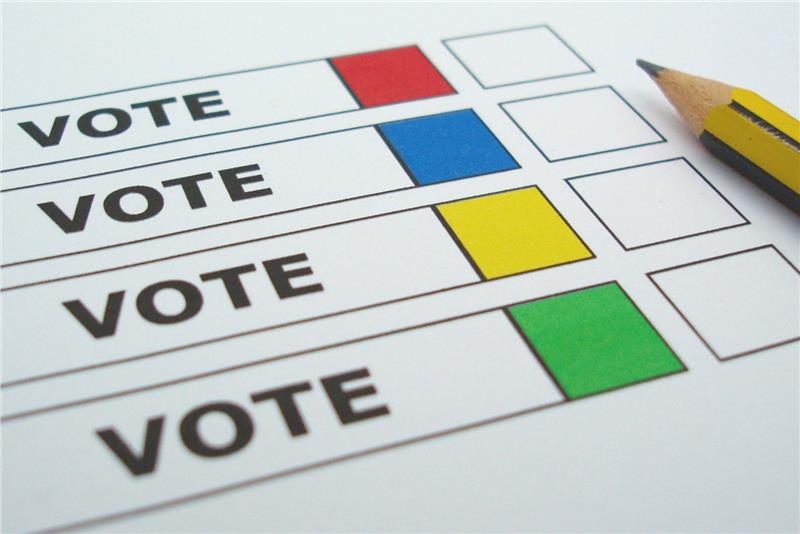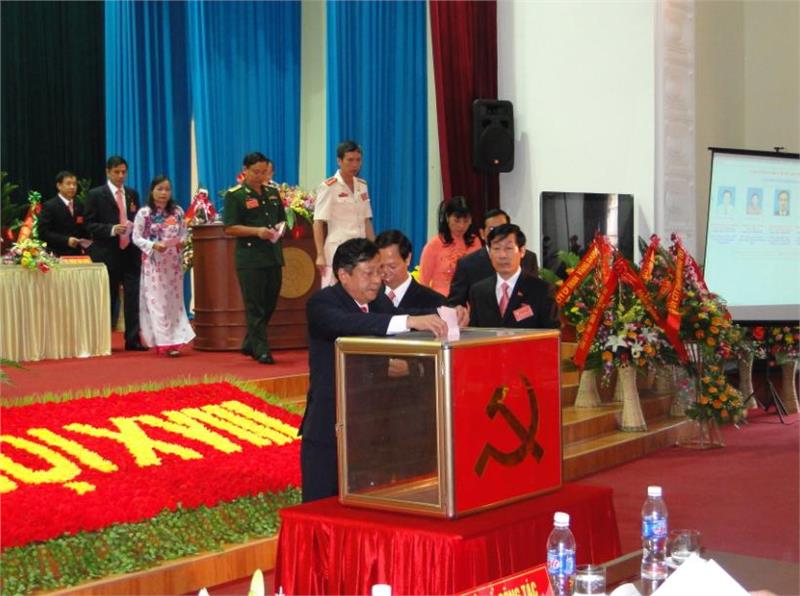Election principles were closely and throughout expressed in a unified way during the process of conducting elections, ensuring an objectivity election and democracy, reflecting aspirations of the electorate when choosing. Election in Vietnam must clearly define rights and responsibilities of voters in the election, the State's responsibility to ensure the election rules.
The principle of universal suffrage in elections ensures that all citizens without regard to race, sex, social class, belief, religion, educational level, occupation, residence period, 18 years of age or older are eligible to participate in elections and those who is enough 21 years old or older have the right to be a candidate for the National Assembly and People's Council as long as prescribed by Vietnam national law. The State must ensure the election to become a truly extensive political activity, creating favorable conditions for citizens to carry out their right to vote their choice, ensuring democracy, openness, and participation of the broad strata.

Laws on electing deputies to the National Assembly and People's Council stipulates: Vietnam Election Day must be on Sunday, the National Assembly Standing Committee determined and announced no later than 105 days before the election. The elections were publicly established with the participation of representatives of State agencies, civil society organizations and people's organizations. Voting time was uniformly prescribed throughout the whole country from 7 am to 7 pm. Depending on the local situation, election commissions of Vietnam might decide to start sooner but not before five o'clock in the morning or end, but not later than ten o'clock at night. All citizens of habitual residence or temporary residence shall be included in the voter list. Voter list was publicly posted at least 35 days before the election. List of candidates was also established and publicly posted at least 20 days before Election Day for voters to choose. In addition, the counting of votes shall be openly conducted under the witness by representatives of voters, candidates and representatives of journalists.

The principle of equality in voting ensures that all citizens have equal opportunities to participate in the Vietnam election. Prohibit discrimination in any form. The election law also regulates that voter each can only be enrolled in the voter list at only one residence, each person only names his candidate in only one constituency, and each voter takes only one vote.
Principles of direct election mean that citizens directly express their will through the ballot. Accordingly, citizens directly elect their representatives and not through any electoral representatives. Voters put their own ballot into the ballot box by themselves. If voters cannot write their vote, they should ask someone to write them, but must satisfy themselves by voting under law principles of Vietnam politics. The writer must keep secret ballots of voters. If voters are sick, elderly, disabled who cannot come to the polling station to vote, election commission must bring extra ballot box and vote to voters’ home for them receiving ballots and voting.
Principle of secret ballot is to ensure objectivity in the selection of electors. According to this principle, those who elected or not elected are kept confidential. Under election law provisions, as voters write their own ballots, no one was approached, including officers and employees of the electoral institutions; no one interferes the writing of voters.
